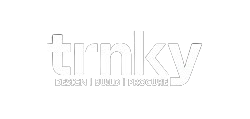In the complex world of construction, effective procurement is crucial for the success of any project. From sourcing materials and selecting vendors to managing contracts and budgets, navigating the procurement process requires careful planning, attention to detail, and strategic decision-making. Whether you’re a seasoned professional or new to the industry, here are some key tips to help you navigate the procurement process and achieve success in your construction projects.
Understand Your Project Requirements
Before diving into the procurement process, it’s essential to have a clear understanding of your project requirements. Take the time to define your objectives, scope, and timeline, as well as any specific technical or regulatory requirements that may impact your procurement decisions. By establishing clear goals and criteria upfront, you can streamline the procurement process and ensure that your project stays on track.
Conduct Thorough Market Research
Effective procurement begins with thorough market research. Take the time to identify potential suppliers, subcontractors, and vendors who can meet your project needs. Evaluate their capabilities, experience, and track record to ensure they are qualified and reliable partners. Additionally, research market trends, pricing dynamics, and availability of materials to make informed procurement decisions and negotiate favorable terms.
Develop a Comprehensive Procurement Strategy
Once you have a clear understanding of your project requirements and market landscape, develop a comprehensive procurement strategy. This strategy should outline your approach to sourcing, contracting, and managing vendors throughout the project lifecycle. Consider factors such as procurement methods, bidding processes, risk management, and quality assurance to mitigate potential challenges and maximize value for your project.
Establish Clear Communication Channels
Effective communication is essential for successful procurement in construction projects. Establish clear channels of communication with vendors, subcontractors, and project stakeholders to ensure alignment and transparency throughout the procurement process. Clearly define roles, responsibilities, and expectations, and establish regular checkpoints to monitor progress, address issues, and make adjustments as needed.
Prioritize Collaboration and Relationship Building
Building strong relationships with vendors and subcontractors is critical for successful procurement. Prioritize collaboration and open communication to foster trust and mutual understanding. Treat vendors as strategic partners rather than transactional suppliers, and work together to identify opportunities for value creation, innovation, and continuous improvement throughout the project lifecycle.
Embrace Technology and Automation
In today’s digital age, technology plays a central role in streamlining procurement processes and enhancing efficiency. Embrace technology and automation tools such as procurement software, e-procurement platforms, and contract management systems to streamline workflows, centralize data, and improve decision-making. Leverage data analytics and real-time reporting capabilities to gain insights into procurement performance and identify areas for optimization.
Monitor Performance and Continuously Improve
Finally, don’t overlook the importance of monitoring performance and continuously improving your procurement processes. Establish key performance indicators (KPIs) to measure the effectiveness and efficiency of your procurement activities, and regularly assess performance against these metrics. Solicit feedback from project stakeholders and vendors, and use this input to identify opportunities for optimization and refinement in future projects.
Conclusion: Success Through Strategic Procurement
In conclusion, success in construction projects hinges on effective procurement practices. By understanding your project requirements, conducting thorough market research, developing a comprehensive procurement strategy, establishing clear communication channels, prioritizing collaboration and relationship building, embracing technology and automation, and continuously monitoring performance and improving processes, you can navigate the procurement process with confidence and achieve success in your construction projects. With strategic procurement, you can optimize costs, mitigate risks, and deliver projects that meet or exceed expectations, ensuring long-term success for your organization.


